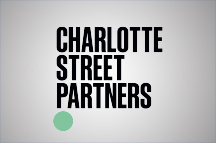“I do the weave. You know what the weave is?
“I’ll talk about, like, nine different things that they all come back brilliantly together. And it’s like friends of mine that are like English professors, they say: ‘It’s the most brilliant thing I’ve ever seen,’” said former president, Donald Trump, at a rally on Saturday ahead of the debate with vice president Kamala Harris.
While the most surprising part of this statement may be that Trump knows an English professor, “the weave” is a source of bemusement, mirth, and is sometimes a professional affront to pundits, journalists, speaking coaches, and probably every other English professor that doesn’t personally know the former president.
The issue with “the weave” is that it goes against every bit of best practice around public speaking – if the aim is to communicate ideas, thoughts or information.
At Charlotte Street Partners, we have an entire Teams channel dedicated to sharing the good, bad and the ugly examples of media interviews and public speaking to inform our media training and speech coaching. Let’s just say, Trump has never made it into the good category.
When most politicians or business leaders speak publicly it is because they have information that needs to be communicated, ideas they want to share, or opinions they want to influence.
Doing this effectively requires structure and a linear, logical, and repeated deployment of key messages.
In contrast, Trump’s rambling technique has long been used to avoid having to say much about his ideas, policies, or the complexities and nuance around the issues facing the American public.
Many have commented on the timing of Trump’s revelation about “the weave”. It came on the back of an increase in age-related criticism of his rambling and ahead of the debate. Perhaps the fear of delivering his own Biden-like debate performance was weighing on his mind, but - in typical Trump fashion - he declared himself to have no weakness. Instead, it was all a clever tactic.
At the rally he went on to say, “… the fake news, you know what they say, he rambled. It’s not rambling. What you do is you get off of a subject, mention another little titbit, then you get back onto the subject, and you go through this and you do it for two hours, and you don’t even mispronounce one word.”
For many Scots, “the weave” is pure Billy Connolly. Long storytelling, with multiple tangents, all brought together at the end. The difference? Connolly made every line important and funny. And the ending was pure gold. He never rambled.
What Trump did do well during this particular interlude was use his hands. Any speech coach will tell you that talking too much with your hands is a distraction, but standing rigid with no movement can be worse. While explaining his technique, Trump moved his hands in a way as to illustrate the strategic formation of his woven thoughts, and it was an effective visual – if not a bit reminiscent of Benedict Cumberbatch in Sherlock.
Which is partly why one can believe that “the weave” is indeed a brilliant tactic. It is an essential tool to enable one to speak for two hours about nothing at all, while still managing to generate headlines.
This tactic also enables him to bask in the glow of his rallies. When he became president in 2017, there were rumours of his displeasure with the realities of the job and the pressures to stem the rambling narrative (how effectively he managed this is open to debate). He preferred the campaign trail, the verbal freedom, and the buzz he got from the rallies.
If he wins in November, he will be thrust back into that environment and he will likely receive more pressure from his advisors to stick to the script.
Until then, his speech writer is probably enjoying the down time.












